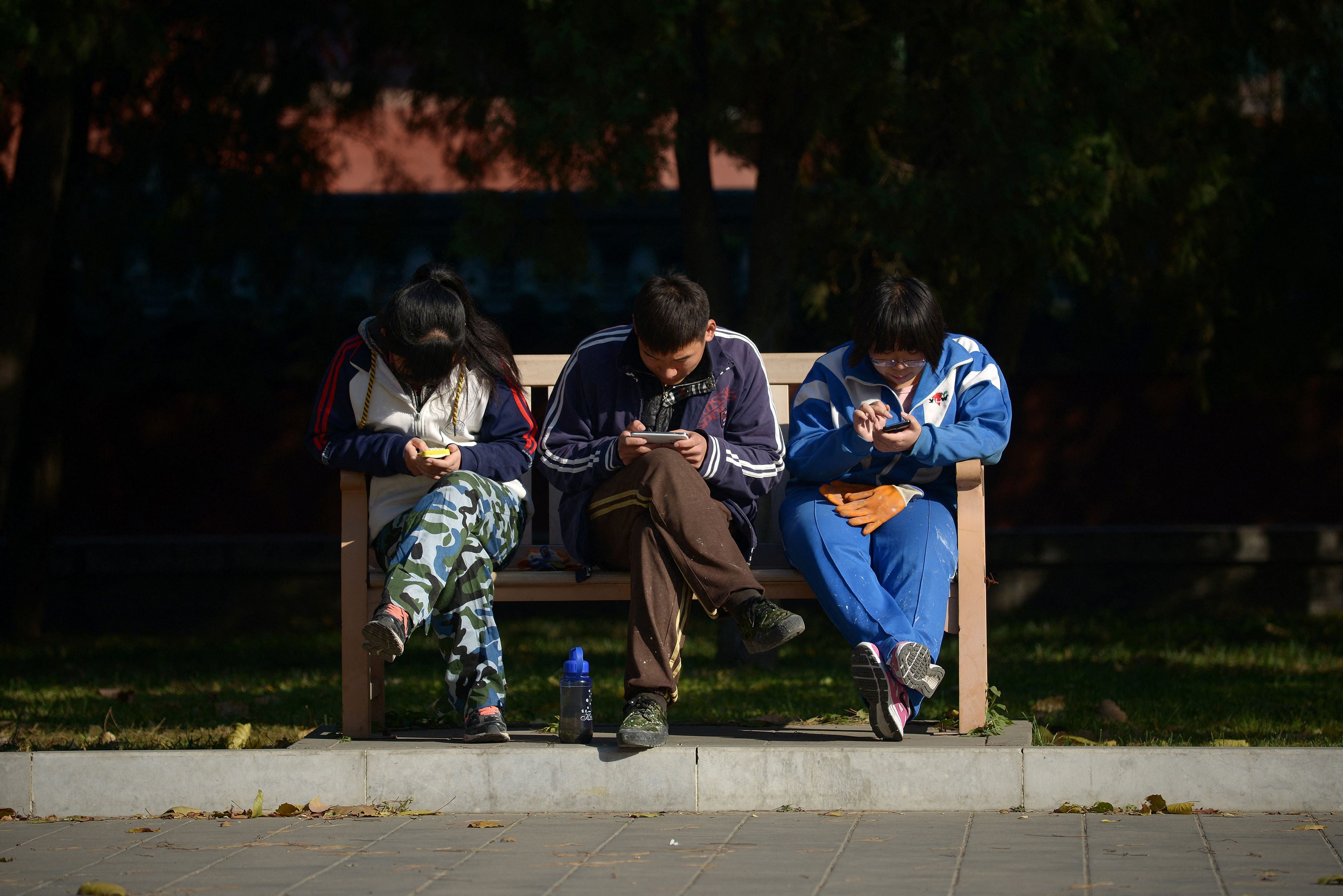China seeks to limit children to two hours a day – or less – using their smartphones
Beijing proposes that service providers and device makers create a “mode” that would see online applications automatically close when the time limit has been reached

Your support helps us to tell the story
From reproductive rights to climate change to Big Tech, The Independent is on the ground when the story is developing. Whether it's investigating the financials of Elon Musk's pro-Trump PAC or producing our latest documentary, 'The A Word', which shines a light on the American women fighting for reproductive rights, we know how important it is to parse out the facts from the messaging.
At such a critical moment in US history, we need reporters on the ground. Your donation allows us to keep sending journalists to speak to both sides of the story.
The Independent is trusted by Americans across the entire political spectrum. And unlike many other quality news outlets, we choose not to lock Americans out of our reporting and analysis with paywalls. We believe quality journalism should be available to everyone, paid for by those who can afford it.
Your support makes all the difference.China is seeking to limit children’s smartphone usage to a maximum of two hours a day, in an effort to curb the young population’s internet addiction.
The Cyberspace Administration of China (CAC) issued draft guidelines saying that device makers, tech companies and service providers should introduce a “minor mode” function that would bar users under 18 from accessing the internet on mobile devices from 10pm to 6am.
The proposed rules say that children and teens using devices on minor mode would automatically see online applications close when respective time limits are up. They would also be offered “age-based content”.
Teenagers between the ages of 16 and 18 would only be able to use the internet for two hours a day, while those aged eight to 15 would be allowed only an hour a day. Children under eight would only be allowed 40 minutes.
Those under 18 would also receive pop-ups reminding them to rest after 30 minutes of usage.
According to the guidelines, only certain services, such as apps or platforms that are deemed suitable for the physical and mental development of minors, will be exempt.
“To effectively strengthen the online protection of minors, the CAC has in recent years pushed for the establishment of a youth mode on internet platforms, expanding its coverage, optimising its functions and enriching it with age-appropriate content,” the CAC said.
It said the rules would push internet groups to classify content into five different categories based on age, and children aged between 16 and 18 would be provided with “healthy content”.
The guidelines are Beijing’s latest effort to limit internet usage among the young. In 2021, rules were put in place allowing children only an hour a day of online game play on Fridays, weekends and public holidays. That was a tightening of earlier rules.
Since then, a number of companies – including ByteDance, which runs popular short-video platform Douyin – have offered “teenage modes” that restrict the users’ access to content and the duration of use.
The release of the guidelines on Wednesday led to a drop in shares in firms like Tencent, China’s largest online game company, and ByteDance.
Xia Hailong, a lawyer at the Shanghai Shenlun law firm, told Reuters that the rules would be a headache for internet companies.
It would require “a lot of effort and additional costs to properly implement these new regulatory requirements”, he said.
“And the risk of non-compliance will also be very high. So I believe that many internet companies may consider directly prohibiting minors from using their services.”
The Chinese internet watchdog has said the draft guidelines are open to public feedback until 2 September.
Reuters contributed to this report



Join our commenting forum
Join thought-provoking conversations, follow other Independent readers and see their replies
Comments